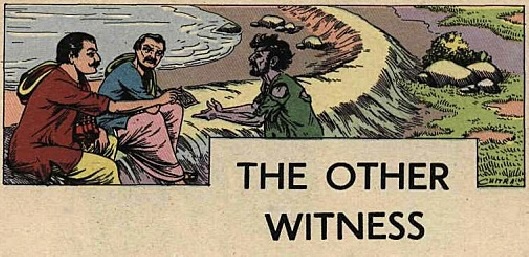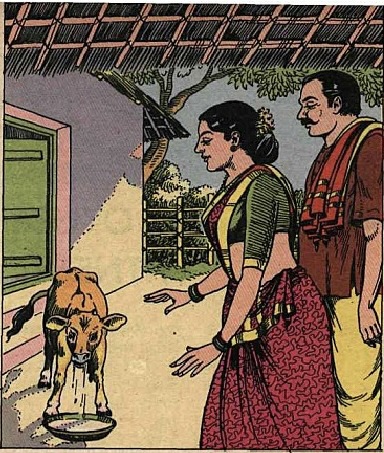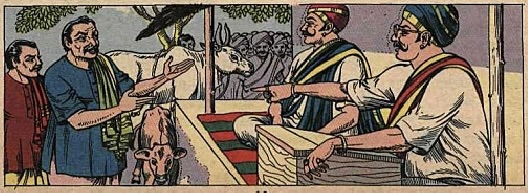The Other Witness

Pramod and Ramani were two moderately prosperous landowners who lived in the same village. But they were two men of vastly different characters. Pramod was a generous and kind-hearted man and naturally was popular with everyone. At the same time, Ramani was arrogant and had a reputation for meanness. People said Ramani wept buckets whenever he was forced to spend a coin.
One day, the two men happened to meet on the outskirts of the village, and although they had little in common, good-natured Pramod stopped and jocularly asked Ramani how his crops were coming on.
Before Ramani could reply, an old beggar who was passing by stopped and asked the two men for alms.
“Get away with you,” roared Ramani. “If I gave money to every beggar, I would be a beggar myself.”
But Pramod put his hand in his pocket and gave the beggar a few small coins. “There you are, my man, now go and get yourself something to eat.”.
As the beggar shuffled away, Ramani turned to Pramod and said, “Why do you give money to these useless beggars?”
“A little charity doesn’t hurt anyone,” Pramod replied.
Ramani went on his way, muttering and grumbling over people who gave money to beggars and how he would love to take that fellow Pramod down a peg that would wipe the smile off his face.
Some days later, Pramod was walking across his fields when he discovered a young calf in peril of drowning in the canal that flowed past his fields. He promptly rescued the poor animal, dead than alive, and carried it home for his wife to look after.

With good feeding, the calf soon recovered, and it came to the ears of Ramani that Pramod now possessed a young calf. That’s funny, Ramani; that man never owned any cattle. He must have stolen that calf so that I will complain to the magistrate.
So off to the magistrate’s court went Ramani, where he swore that a calf by his prize cow had been stolen, and he was optimistic that Pramod was the thief.
The magistrate was a little sceptical of this story, but he sent Pramod to attend the court and bring the calf.
When Pramod arrived with the calf, Ramani pounded the magistrate’s desk with his fist, shouting, “That’s my calf; I would recognise it anywhere.”
“Hold your tongue,” ordered the magistrate, and turning to Pramod asked him to explain how he came to own the calf.
Pramod told the court how he rescued the calf from the canal and could not find the rightful owner who had kept the calf.
“A pack of lies,” roared Ramani. “Of course, he stole the calf from me. Send the rogue to prison.”
“Not so fast,” said the magistrate peering over his glasses. “There’s another witness in this case”, and pointing his finger at Ramani, he went on-“Go and fetch the cow to which this calf belongs.”
Off went Ramani, mumbling and growling about peculiar justice, and eventually returned leading a placid cow on a rope.
The calf made no move to- wards the cow, and the cow took one look at the calf and shied away as if to say, I want nothing to do with this strange calf.
The magistrate gave Ramani a searching look, who was beginning to wish he had never made the complaint.
“Well, perhaps I was mistaken,” he mumbled. “But- “You have said enough,” said the magistrate sternly. “The calf rightly belongs to Pramod. And because you have come to this court anxious to defame Pramod, I order you to pay him the sum of five hundred rupees for trying to cause him a mischief.”
